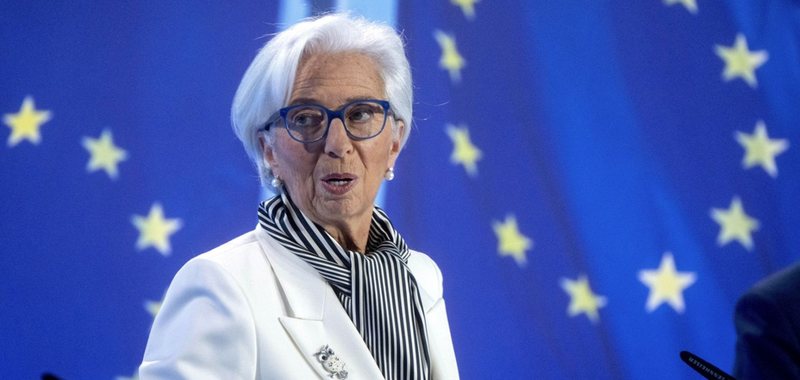Germany is losing over 10,000 workers per month - Industry plans to cut jobs by 44%

Unemployment in Germany is rising, and especially in industry, many companies are planning to cut jobs. New jobs are being created mainly in the service sector and are often lower-paid. Research by the German Institute for Economic Research in Cologne shows that this year only 17 percent of companies will hire more workers, while 38 percent plan to reduce the number of employees.
The outlook is particularly bleak in industry, where 44 percent of companies surveyed plan layoffs, while only 14 percent anticipate new hires. "This means that the already noticeable decline in employment in German industry will continue this year," the institute says.
The number of employees in the industry by November 2024 was around 7.4 million, while in 2019 it was almost 7.8 million. This represents a decrease of around 350,000 jobs in that sector. "Germany is in an economic downturn, which is now increasingly affecting the labor market. Unemployment is rising for the third year in a row," the analysts explain.
Since 2017, the unemployment rate in Germany has averaged below six percent. Last year, it rose to six percent for the first time, while in January and February of this year it reached 6.4 percent. "Considering the economic situation and the decline in economic growth, employment is still at a relatively stable level," analysts estimate.
However, according to him, this can be attributed to the fact that the service sector is currently compensating for job losses in industry: "Right now, the different branches of the economy are developing unevenly like never before. Industry is the most affected by the crisis. We are losing more than 10,000 jobs per month," they say.
At ZF, Continental, Thyssenkrupp and Volkswagen, around 70,000 jobs are at risk in the coming years. In addition, Scheffler, Porsche, Bosch and Ford are planning to cut thousands of jobs.
The shortage of skilled workers is decreasing
Mainly because it is increasingly difficult to find a job even for qualified workers, the shortage of skilled labor in industry is decreasing. According to research by the ifo institute, in January 2025, only 18 percent of industrial companies reported a shortage of experts, while in the third quarter of 2022, this percentage was 44.5 percent.
Overall, the shortage of skilled workers in Germany is decreasing. While in the third quarter of 2022, almost half of all companies had difficulty finding qualified workers, in January 2025, this percentage fell to 28.3 percent. In the service sector, the need is still above average, at 35.1 percent.
Economists point out that this is not just a consequence of the problems of existing companies. "The number of new jobs has never been lower. The creation of new companies in the industry has never been at such a low level. New investments have been falling for years," they explain.
The military industry is booming
However, there are exceptions. One of them is the military industry, which is experiencing significant growth. Germany's largest arms manufacturer, Rheinmetall, increased revenue by more than 30 percent in the first nine months of the current business year. Two factories that currently produce civilian components for vehicles may soon switch to production for the military industry.

"Unlimited" Internet in 2024 - AKEP: Albanians consumed more GB, but fewer minutes and SMS
During 2024, Albanians consumed more internet, but fewer minutes and SMS messages. The internet is increasingly being used for communication, but also for......

Postal company chosen for diaspora vote - CEC: From April 5, the packaging of 245,808 envelopes in 85 countries will begin
The Central Election Commission has prepared the company that will transport the vote for Albanian emigrants. Of the 5 international companies that offer......

0% interest loan for home purchase/ Gonxha: 1,000 applications so far, deadline is April 10
Minister of Economy, Culture and Innovation Blendi Gonxhja announced today that over 1,000 applications have been made so far, since the opening of the call......

Imported Meat, 19 Times Cheaper Than Local / Export and Import Prices Show Stark Contrasts
Foreign trade figures are presented to us in two dimensions, that of value and that of weight, from which we can extract some very interesting data. "Scan......

Trump makes no exceptions - "Reciprocal tariffs will target all countries"
United States President Donald Trump said the reciprocal tariffs he will announce this week will include all nations, not just a smaller group of 10 to 15......

5 cubic meters of water per month for free for families in need - 31 million lek were distributed in 2024. Pogradec, Korça and Kukës are leading
Around 31 million lek is the amount spent during 2024 to compensate for the minimum vital amount of water for families in need. According to data from the......

EU, 1.3 billion euros for cybersecurity - Investment plan covers the period 2025-2027
Cybersecurity firms could soon see the benefits of a new round of investment from the European Union. The European Commission said the Digital Europe......

"Tariffs, the first step towards Europe's independence" - ECB President stresses the need for investments in energy, defense, digitalization
The current geopolitical and economic situation, especially with the increase in customs tariffs imposed by Donald Trump, "is the beginning of a march......


















